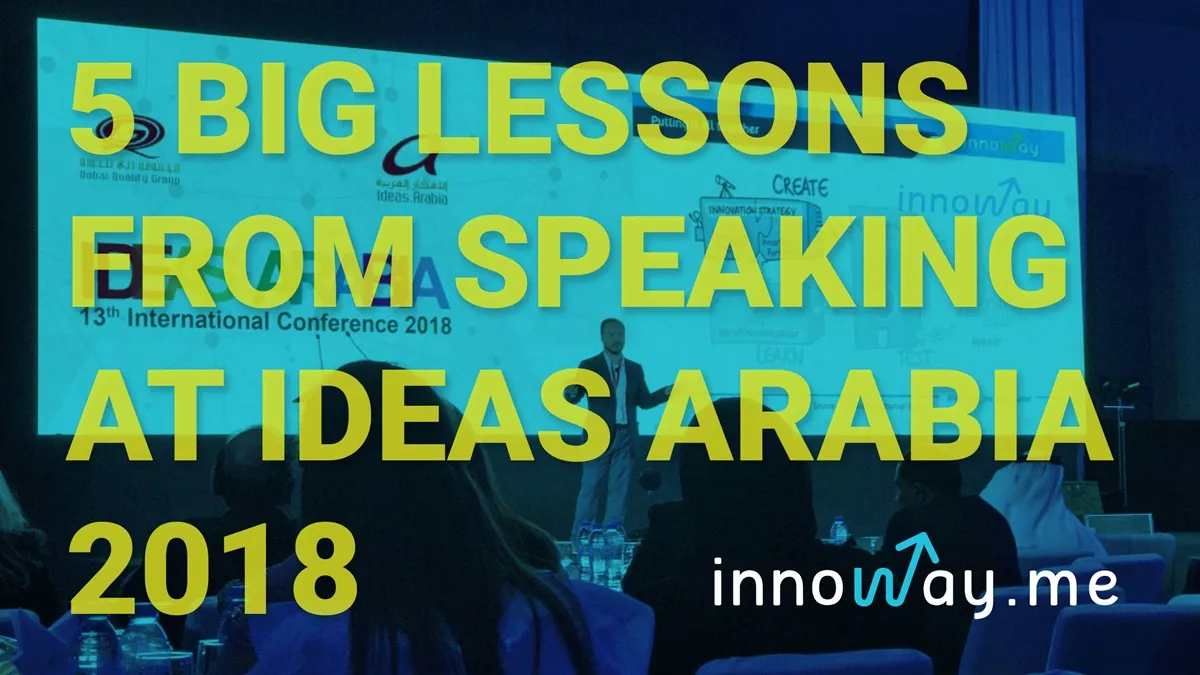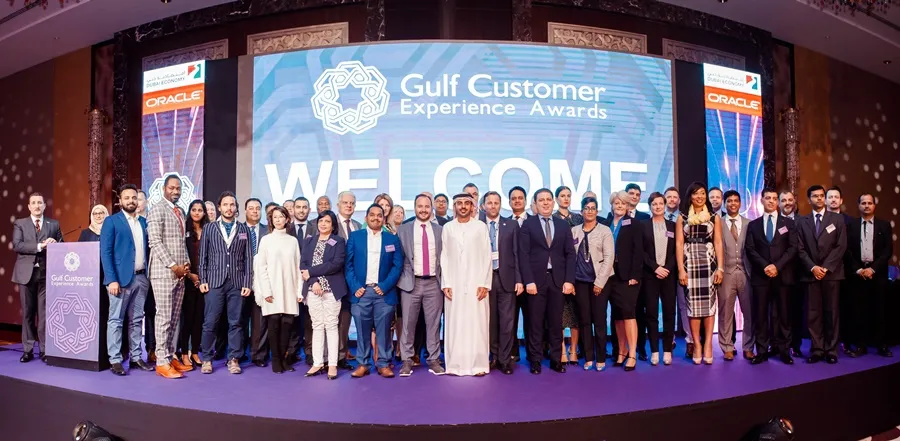Last week, I was fortunate enough to speak at the Ideas Arabia conference. The two-day event, which was run under the theme “Spirit of Innovation“, featured speakers from UK, India, USA, and the UAE.
It was the first time I’ve presented to such a big audience. While that made the occasion incredibly exciting, I did miss some of the interaction I usually have with smaller audiences. This may be something the organisers could look at for next year’s event. A few other activities and formats would go a long way to increasing the sense of dialogue.
When you’re promoting innovation, you need to think beyond the straightforward conference format and look at things like an unconference, workshops, fish bowl, world café, and the like.
Nonetheless, the event provided some valuable insights over the two days. Here are a few of them.
1. Dubai’s embracing innovation
Dubai is embracing innovation, and organizations in the public sector are trying hard to become more innovative, but we still have a long journey ahead. At Innoway, we believe that a good first step is defining what innovation is and then find the most adaptable applications when it comes to frameworks, incentives, governance, etc. Here you will find our definition to innovation, invention and creativity.
We then can assess the organization’s maturity and working with top management to figure out how much of an appetite for innovation there really is.
2. “Fail fast, fail often” has gone mainstream
Fail fast, fail often was something most speakers highlighted. It was the first time I’ve seen the message spoken about so openly at such a mainstream event. Being strong supporters of an experimentation culture, it’s something we found really encouraging. That said, it is still a big challenge to implement in organizations. At innoway we encourage clients to have a proper “sandbox”; that is, a defined place to run experiments under the control of, AND in alignment with, the rest of the organization.
3. Inspirational talks are useful when they lead to action
Listening to high calibre speakers from abroad can be very inspiring and helps increase awareness around great innovation practises. That said, implementation must be the responsibility of each organization. We also need to understand the application of that specific approach into our reality. Just because something works in “The Valley”, doesn’t mean you can do the same thing here and expect results. With more than 7 years in the region, we always strive to localize all we do, and align it to UAE innovation strategy and government Excellence standards.
4. Moving from tools to ecosystems
A lot was said at Ideas Arabia about treating innovation as an ecosystem rather than a series of tools. That’s important. It is not enough to come up with ideas, or to conduct workshops. Innovation comprises many elements that must be coordinated and managed. That’s why we always treat innovation in organizations as an ecosystem with three main elements: direction, governance and experimentation.
5. Intrapreneurship vs the startup world
Another recurrent topic was the difference between intrapreneurship and startups. Although there are some similarities, they must be treated separately. Each one has its own challenges. While intrapreneurs might find a lot of internal resistance coming from support units (i.e. procurement, finance, IT), the personal risk taken is much less, hence there is less pressure.
Startups, on the other hand, can move fast (and break things), but their resources are usually scarce and time-bound (runway). We at innoway engage entrepreneurs to help us run experiments faster, although we make sure we have the right governance in place (to reduce risks and “not break things!”).
This is something organizations of all sizes need to do when working with startups. Similarly, big organizations around the globe struggle to embed Venture capital and startup practices (pivot, fail fast and often, gradual investment, innovation portfolio,etc.). These organizations are big elephants, with a lot to lose. They can certainly learn a lot from startups, but they’ll never be able to behave exactly like them.



